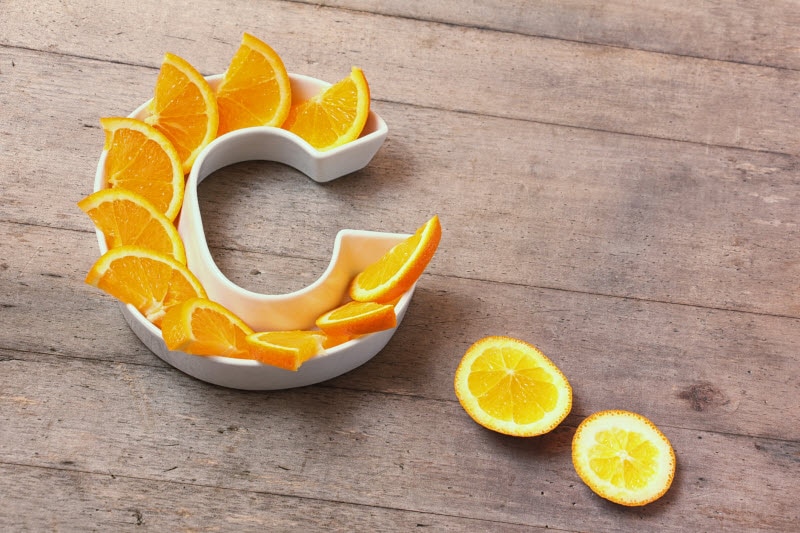Whether you get them through your diet or through supplements, vitamins are essential nutrients. Among other things, essential nutrients are important for supporting your immunity, repairing damaged cells and strengthening your bones.
But there are some surprising benefits of vitamins that you might not be aware of. Here, we outline four of those benefits.
Vitamin A and eyesight
Scientific American magazine notes that your body uses beta-carotene (a plant pigment found in foods like carrots and sweet potatoes) to produce vitamin A. According to the magazine, this vitamin provides several eyesight benefits, such as:
- Helping the eyes convert light into a signal that can be sent to the brain, enabling people to see in low-light conditions.
- Preserving the cornea (the clear front of the eye). Every year, an estimated 250,000 to 500,000 children become blind due to vitamin A deficiency.
- Improving night vision among people with severe vitamin A deficiency.
Sources of vitamin A include dark leafy greens, sweet potatoes with orange flesh, carrots, pumpkins, mangoes, papayas, liver, eggs and milk.
Vitamin C and wounds
Registered dietitian and licensed dietitian nutritionist Amanda Kostro Miller, a member of the board of advisers for health advice website Fitter Living, says vitamin C might help heal wounds.
“Wound healing is important for keeping infectious agents out of the body. If an infection can’t get into your body, then it can’t make you sick,” Miller says.
The Linus Pauling Institute, a research arm of Oregon State University, says studies of vitamin C’s effect on wound healing offer “somewhat mixed results.”
According to the institute, data from lab animals and humans indicates that vitamin C deficiency results in poor healing of wounds, with the use of supplements by vitamin C-deficient people demonstrating “significant benefits.” However, adding vitamin C via supplements doesn’t increase the time for wound closure in otherwise healthy people. As such, vitamin C might affect only certain aspects of wound healing.
Foods with vitamin C include citrus, bell peppers, cantaloupe, papaya, turnips, Brussels sprouts, potatoes, kiwi, strawberries, broccoli, tomatoes and kale.
Vitamin D and pregnancy
A study published in 2018 in The Lancet Diabetes & Endocrinology scientific journal delivers potentially good news for some women who are trying to become pregnant.
The study found that among women planning to conceive after suffering a pregnancy loss, those with adequate levels of vitamin D were more likely to become pregnant and have a live birth than women with inadequate levels of vitamin D, according to a news release from the National Institutes of Health.
“Our findings suggest that vitamin D may play a protective role in pregnancy,” says the study’s principal investigator, Sunni Mumford of the Eunice Kennedy Shriver National Institute of Child Health and Human Development.
Women who had sufficient levels of preconception vitamin D were 10 percent more likely to become pregnant and 15 percent more likely to have a live birth compared with women who had insufficient levels of vitamin C, the study says. Among women who became pregnant, each increase of 10 nanograms per milliliter (ng/mL) in preconception vitamin D was associated with a 12 percent lower risk of pregnancy loss.
The study’s authors caution that the results don’t confirm a cause-and-effect relationship between vitamin D and pregnancy.
Aside from the sun, sources of vitamin D include egg yolk, fortified cereal, fortified milk, fortified orange juice, salmon, sardines, Swiss cheese, tuna and yogurt.
Vitamin E and inflammation
You’ve probably heard that vitamin E can do wonders for your skin and hair. But family physician Dr. Carrie Lam says the benefits of vitamin E “don’t stop with improving hair and skin texture. The protective actions of vitamin E are many.”
One of those protective actions involves fighting inflammation. According to the U.S. National Library of Medicine, vitamin E is a potent antioxidant with anti-inflammatory properties.
As Kim explains, vitamin E neutralizes free radicals and stops oxidation, which can harm molecules in our cells, such as DNA and proteins.
Although your body creates free radicals naturally when converting food to energy, you’re constantly exposed to environmental free radicals like pollution, firsthand or secondhand cigarette smoke, and UV radiation from the sun, Kim says. If your body lacks enough antioxidants (including vitamin E) to combat these harmful free radicals, oxidative stress can be triggered. Oxidative stress is linked to inflammation, which the Vanderbilt University medical school points out “ignites a long list of disorders,” including arthritis, asthma, atherosclerosis (arteries clogged by plaque), blindness, cancer and diabetes.
The Mayo Clinic notes that if you take a vitamin E supplement for its antioxidant properties, the supplement might not supply the same benefits as naturally occurring antioxidants in food. Foods rich in vitamin E include canola oil, olive oil, almonds and peanuts.
†These statements have not been approved by the Food and Drug Administration. These products are not intended to diagnose, treat, cure or prevent disease.




